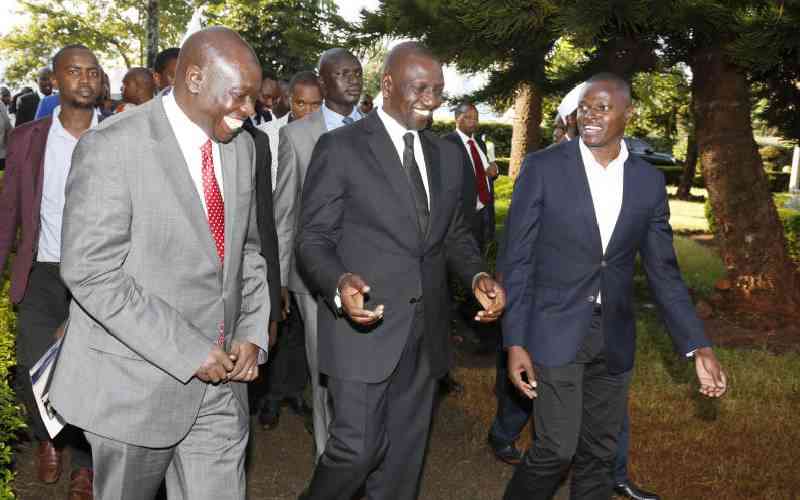×
The Standard e-Paper
Fearless, Trusted News

President William Ruto chats with deputy President Rigathi Gachagua and Kiharu Mp Ndindi Nyoro. [DPCS]
Political spats that have hit and now threaten to split Central Kenya amplify two things; the unifying power the Kenyatta family had on the region, and possible schemes to polarise and weaken a region that has given Kenya three of its five presidents so far.